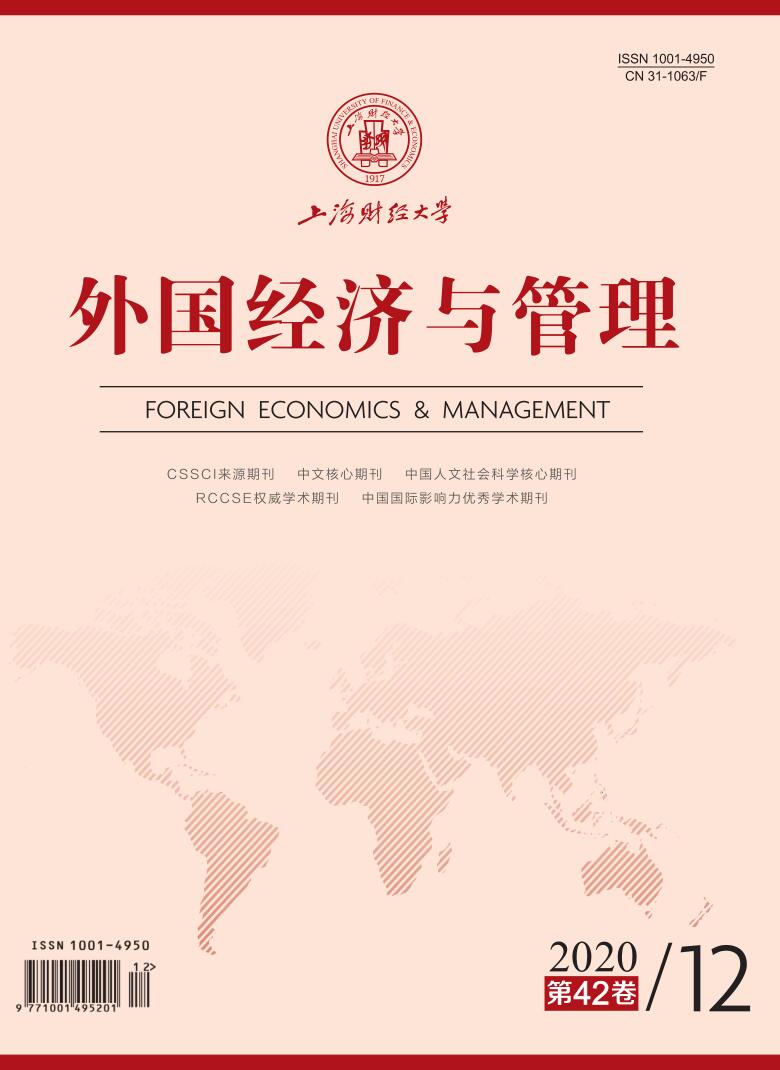This paper studies the influence of the chairman’s internalization degree on the accounting treatment method of R&D investment and R&D cost of family business. It finds that insiders in the broad sense are more conservative than outsiders in terms of R&D investment and accounting treatment of R&D costs, while the chairman and CEO weakens the conservative level. When the generalized insiders are further divided into three categories: high, medium and low degree, we find that:(1)There is not a simple negative correlation between the degree of internalization and R&D investment, but an asymmetric U-shaped relationship between the degree of internalization and R&D investment.(2)Only high-level insiders prefer to adopt more conservative or “real” accounting methods.(3)The chairman and CEO weakens the high-level and medium-sized insiders; meanwhile, it also makes the accounting treatment of R&D cost less “realistic”.The conclusion of this paper has certain policy implications for promoting the innovation activities of listed family firms: First, family members as core executives should follow the principle of internal promotion as far as possible. Family business is the double superposition of firm ecology and family ecology. Family members, especially the second generation members, can become more enterprising and “real” in the firm’s R&D decision-making. Second, in the short and medium term, it can moderately improve the degree of centralization of family business. It is an important way to accelerate the accumulation of personal authority and cultivate the “backbone” of the family and the firm as soon as possible through the combination of two positions, that is, family members concurrently serve as the chairman and the CEO, which is an important way to promote the innovation input of family firms. Third, in the medium and long term, it is one of the important and necessary ways for family firms to gradually open up the core management posts, and to introduce external professional managers as the chairman. The innovation of this paper is mainly reflected in the following three aspects: First, on the research object, this paper further expands the research on family business innovation from the firm and family level to the individual level of family members. Taking the degree of internalization as the main feature of individual executives as the entry point, this paper analyzes the influence of core executives on firm R&D activities, so as to provide a new perspective for understanding the innovation activities of family firms. Second, in the empirical method, the existing literature often uses the birth background, namely blood relationship and kinship, to identify whether the senior executives are family insiders. This paper measures the degree of internalization of senior executives based on the composite perspective of background and mode of employment, and divides them into four categories according to the degree of internalization from high to low. Third, in terms of theoretical expansion, this paper attempts to expand the social emotional wealth theory(SEW)in the Chinese context, trying to embed Fei Xiaotong’s “Difference-order Pattern” interpersonal relationship into this western imported theory, so as to further expand the scope of SEW theory to pan-family members, and enhance the interpretation of the theory in the local social context.
 / Journals / Foreign Economics & Management
/ Journals / Foreign Economics & ManagementForeign Economics & Management
JIN Yuying, Editor-in-Chief
ZhengChunrong, Vice Executive Editor-in-Chief
YinHuifang HeXiaogang LiuJianguo, Vice Editor-in-Chief
Are Insiders More Conservative in Innovation Activities? Evidence from R&D Investment of Chinese Listed Family Firms
Foreign Economics & Management Vol. 42, Issue 12, pp. 104 - 118 (2020) DOI:10.16538/j.cnki.fem.20200825.401
Summary
References
Summary
Keywords
[1] Chen Jianlin, Feng Xinjun, Li Ruiqin. Do family firms promote or hinder innovation? Foreign Economies and Management[J]. Foreign Economics & Management,2018, (4):140-152.
[2] Dou Junsheng, Zhang Lingli, Wang Ning. Theoretical origin and application frontier of socioemotional wealth framework: A family firm perspective[J]. Foreign Economics and Management,2014, 36(12):64-71+80.
[3] Min Yijie, Chen Zhijun, Li Rong. Family involvement and firm technological innovation[J]. Foreign Economics & Management,2016, (3):86-98.
[4] Wang Minglin, Xu Mengna, Wang Hesen. Does altruistic behavior reduce the agency cost? An empirical study based on kin altruistic behavior in family business[J]. Economic Research Journal,2014, (30):144-157.
[5] Wu Bingde, Chen Ling. Socialemotion wealth and R&D investment portfolio: an empirical study of the impact of family governance[J]. Studies in Science of Science,2014, 32(8):1233-1241.
[6] Zhu Gan, Eric Kushins, Zhou Yinghui. Has socioemotional wealth inhibited Chinese family-owned business’ innovation investment? [J]. Management World,2016, (3):99-114.
[7] Almirall E, Casadesus-Masanell R. Open versus closed innovation: A model of discovery and divergence[J]. Academy of Management Review,2010, (35): 27-47.
[8] Berrone P, Cruz C, Gómez-Mejía L R. Socioemotional wealth in family firms: Theoretical dimensions, assessment approaches and agenda for future research[J]. Family Business Review,2012, (25): 258-279.
[9] Classen N, Carree M, Van Gils A. Innovation in family and non-family SMEs: An exploratory analysis[J]. Small Business Economics,2014, 42(3): 595-609.
[10] Gómez-Mejía L R, Haynes K T, Núñez-Nickel M, et al. Socioemotional wealth and business risks in family-controlled firms: Evidence from Spanish olive oil mills[J]. Administrative Science Quarterly,2007, (52): 106-137.
[11] Gómez-Mejía L R, Campbell J T, Martin G, et al. Socioemotional wealth as a mixed gamble: Revisiting family firm R&D investments with the behavioral agency model[J]. Entrepreneurship Theory and Practice,2014, (38): 1351-1374.
[12] Kotlar J, Massis De A, Frattini F, et al. Technology acquisition in family and nonfamily firms: A longitudinal analysis of Spanish manufacturing firms[J]. Journal of Product Innovation Management,2013, (30): 1073-1088.
[13] Miller D, Le Breton-Miller I. Deconstructing socioemotional wealth[J]. Entrepreneurship Theory and Practice,2014, (38): 713-720.
[14] Prencipe A, Baryosef S, Mazzola P, et al. Income smoothing in family-controlled companies: Evidence from Italy[J]. Corporate Governance: An International Review,2011, 19(6): 529-546.
[15] Sirmon D, Hitt M. Managing resources: Linking unique resources, management, and wealth creation in family firms[J]. Entrepreneurship Theory and Practice,2003, (27): 339-358.
Cite this article
Wang Minglin, He Qiuqin. Are Insiders More Conservative in Innovation Activities? Evidence from R&D Investment of Chinese Listed Family Firms[J]. Foreign Economics & Management, 2020, 42(12): 104-118.
Export Citations as:
For
ISSUE COVER
RELATED ARTICLES





 12328
12328  5651
5651

